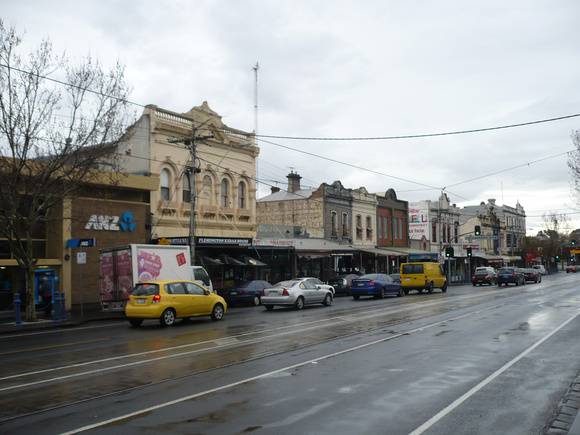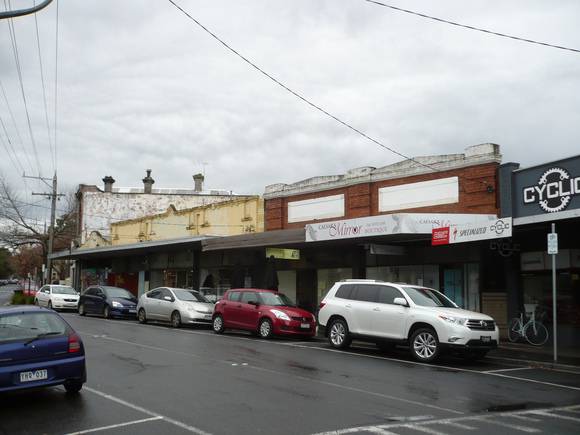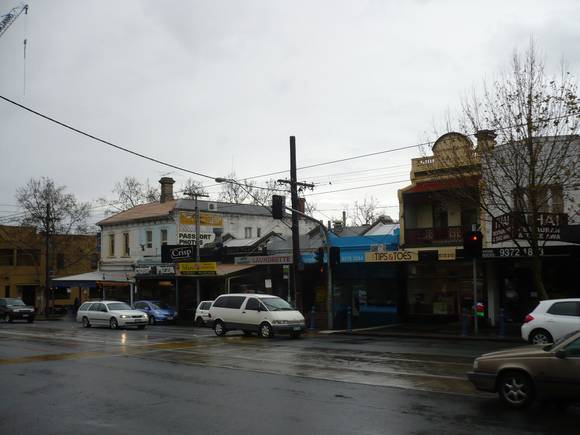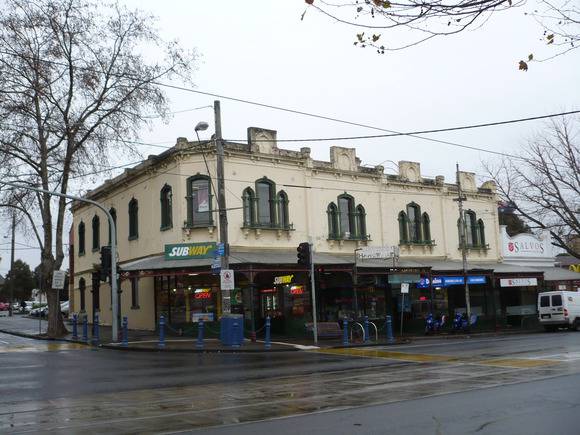| Back to search results » | Back to search page » |
|
Racecourse Road
Location262-336 RACECOURSE ROAD, and 2-72 PIN OAK CRESCENT FLEMINGTON and 275-337 RACECOURSE ROAD, KENSINGTON, MOONEE VALLEY CITY, MELBOURNE CITY LevelIncluded in Heritage Overlay |
|
Statement of Significance
What is significant? - The intactness to the key periods of development The following buildings contribute to the significance of the precinct: - 275-295A, 301-03, 309-11 & 321-337 (odds) and 262-272, 282,
284, 294-304, 316, 318 & 324-336 (evens) Racecourse Road* Non original alterations and additions to Contributory buildings and
the buildings at nos. 297, 305-07, 306-14, 313-17 (odds) and 274,
286-92, 306-14 & 320 (evens) Racecourse Road, and 22-32 Pin Oak
Crescent are not significant. *Note: The former Colonial Bank of Australasia at 300-02 Racecourse
Road and the Doutta Galla Hotel at 337 Racecourse Road are also of
individual significance and have a separate Hermes place record with a
statement of significance.
How is it significant?
Why is it significant? Aesthetically, it is significant as a fine collection of single and
double-storey shops characterised by masonry construction embellished
with rendered ornamentation. The form, finish and general ornament
allows each period to express its differences from within the basic
form and thus illustrates a series of milestones in commercial
development of the precinct through the Victorian, Edwardian and
Inter-War periods. (Criteria D & E)
The Racecourse Road precinct is a commercial area comprising
buildings that predominantly date from c.1880 to c.1935. The following
buildings and elements contribute to the significance of the precinct:
- The former
Colonial Bank of Australasia and Doutta Galla Hotel, which are
landmarks within the precinct
- The historic railway bridge, which
forms the western boundary to the precinct
- The integrity of the
Contributory buildings, particularly above ground floor level, and the
surviving early or original shopfronts to some buildings
- The
consistency of scale and siting of buildings
- The contrast between
the predominantly Victorian era development in Racecourse Road and the
Edwardian and inter-war development in Pin Oak Crescent.
-
2-20 & 34-70 Pin Oak Crescent.
The Racecourse Road precinct of historic and aesthetic
significance to the City of Moonee Valley.
Historically, it is significant as the main commercial centre of
Flemington and Kensington since the 1880s. Retail centres such as
these, which initialy developed around railway stations and along
tramlines, were an important regional focus from the late nineteenth
century until the emergence of car-oriented shopping centres in the
late 1950s. In this precinct the two phases of development is clearly
expressed by contrast between the predominantly late nineteenth
century built fabric in Racecourse and the early twentieth century
development along Pin Oak Crescent that followed the opening of the
electric tramway in 1906 and the electric railway in 1919. The
importance of this precinct is illustrated by the diversity of
commercial premises, at least one former bank, and the former
Flemington and Kensington Hall, which was the first council offices of
the Borough of Flemington and Kensington from 1882 to 1901. (Criteria
A & D)
Group
Commercial
Category
Commercial Precinct







